Liberal Arts
Program overview
Short-Term & Semester Options:
At Sacred Heart University, the Liberal Arts form the heart of a well-rounded education, grounded in the Catholic Intellectual Tradition and its commitment to the development of the whole person -mind, body, and spirit. Studying in Dingle, Ireland, brings this mission to life through a wide selection of liberal arts courses designed to fit all majors and academic interests.
Whether you choose a short-term program or a full semester, you’ll gain an international perspective while immersing yourself in Irish culture, language, and society. Explore diverse subjects such as literature, history, music, sociology, psychology, anthropology, archaeology, and religious studies.
Courses are enriched through field studies and on-site experiences, offering the chance to not just learn about Ireland, but to truly live it.
From seminar discussions to walking through ancient ruins or listening to traditional music in a local pub, studying in Dingle will expand your worldview, inspire your imagination, and deepen your understanding of humanity, all while keeping you on track toward graduation.
AN 230 - CULTURE, COMMUNITY & FOLKLORE
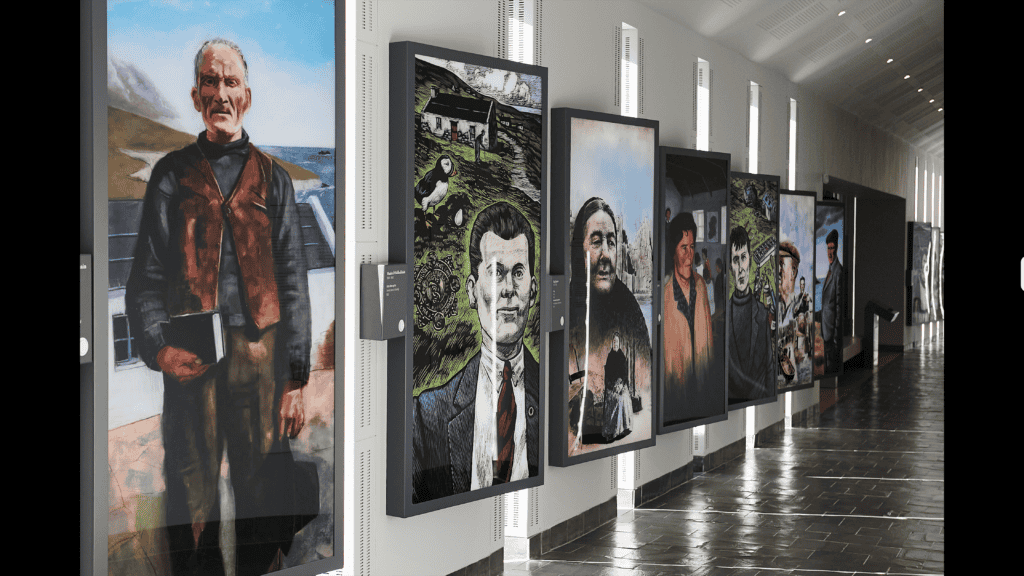
3 Credits
Liberal arts exploration
- Social & Global Awareness,
- Humanistic Inquiry
- Social/Behavioural Science Foundational Core
Offered
Spring Semester
Winter Short-term
Faculty
description
CIT 201 - CATHOLIC INTELLECTUAL TRADITIONS
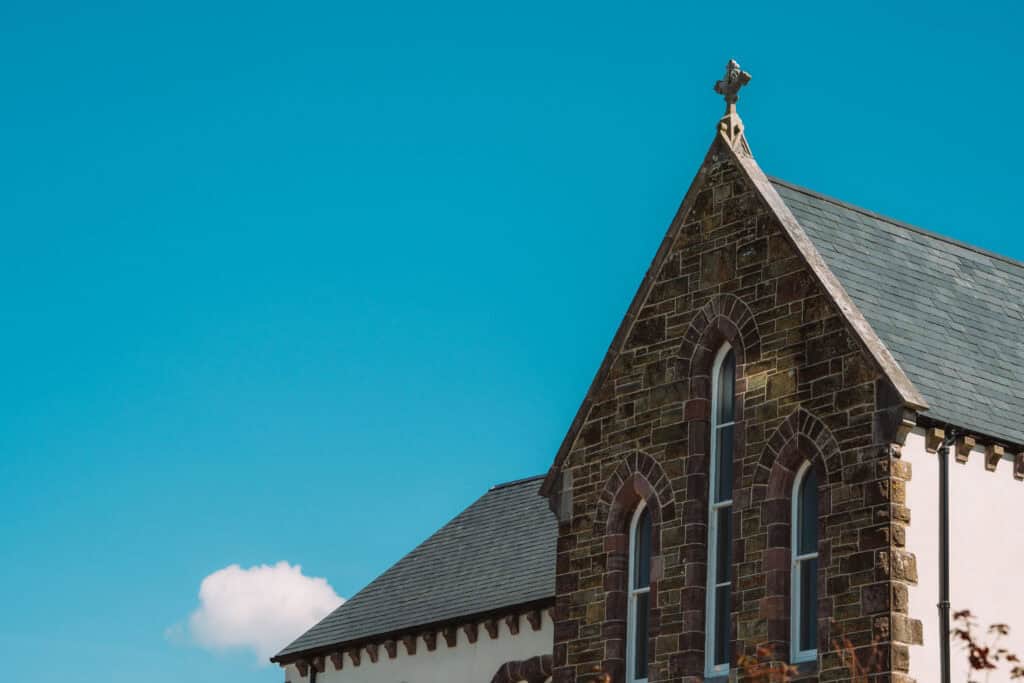
3 Credits
Offered
Fall Semester
Faculty
Bily MagFhlion, Ph.D.
DESCRIPTION
CIT is Sacred Heart University’s academic signature core. It provide students with an interdisciplinary, foundational understanding of the Catholic intellectual tradition from the classical to the contemporary periods. Using seminar pedagogy, it gives students an understanding of the roots and development of the Catholic intellectual tradition as an ongoing, 2,000-year conversation between the Catholic community of thinkers, writers, artists and the cultures in which they have lived, asking fundamental questions about God, humanity, society, and nature.
In addition, it introduces students to fundamental claims of the Catholic Intellectual Tradition; enable students to understand that Tradition as characterized by open, rigorous intellectual inquiry in the context of a faith tradition; engage students and faculty in seminar discussion; and enable students to see the value of this Tradition in the contemporary world help develop students’ reading, writing, and speaking skills.
CIT 202 - CATHOLIC INTELLECTUAL TRADITIONS II
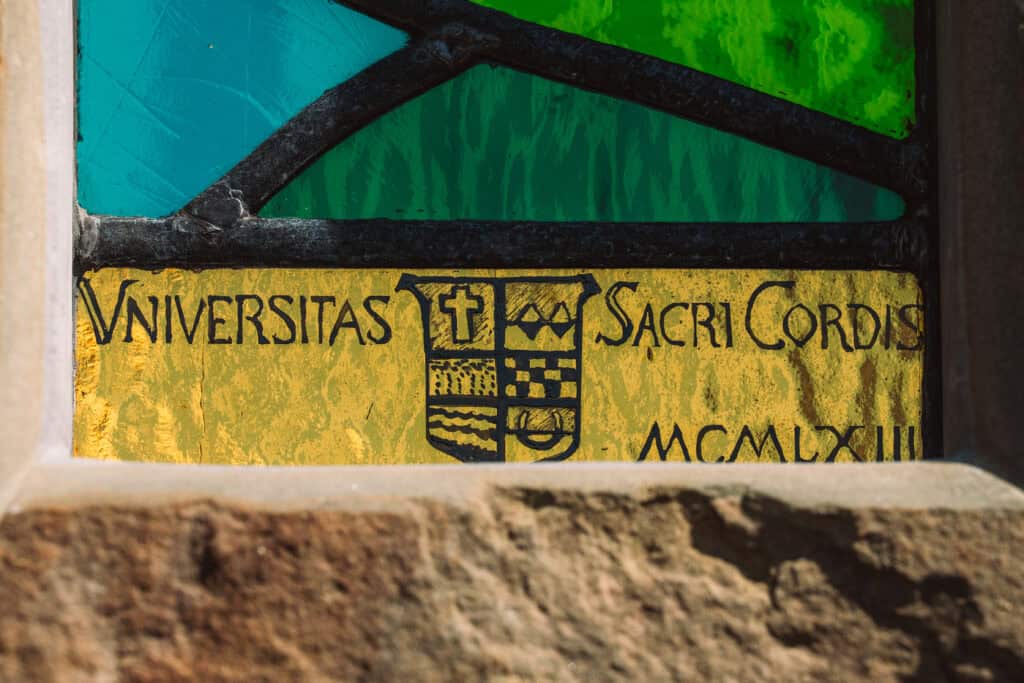
3 Credits
Offered
Fall Semester
Faculty
Bily MagFhlion, Ph.D.
DESCRIPTION
CIT is Sacred Heart University’s academic signature core. It provide students with an interdisciplinary, foundational understanding of the Catholic intellectual tradition from the classical to the contemporary periods. Using seminar pedagogy, it gives students an understanding of the roots and development of the Catholic intellectual tradition as an ongoing, 2,000-year conversation between the Catholic community of thinkers, writers, artists and the cultures in which they have lived, asking fundamental questions about God, humanity, society, and nature.
In addition, it introduces students to fundamental claims of the Catholic Intellectual Tradition; enable students to understand that Tradition as characterized by open, rigorous intellectual inquiry in the context of a faith tradition; engage students and faculty in seminar discussion; and enable students to see the value of this Tradition in the contemporary world help develop students’ reading, writing, and speaking skills.
CJ 253 – CRIMINAL JUSTICE ETHICS
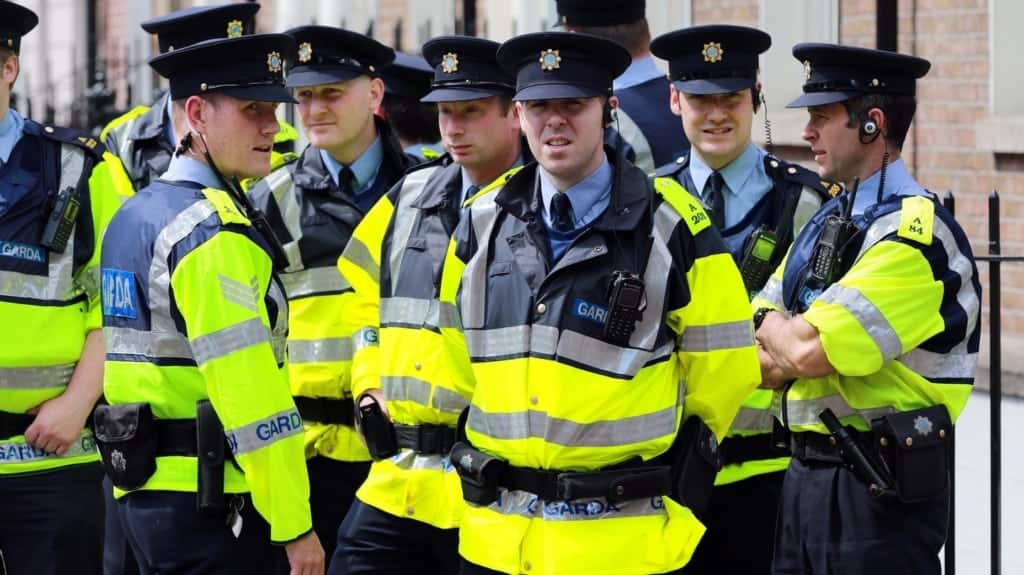
3 Credits
Offered
Summer 1 Short-term
Faculty
Description
This course explores the foundations of ethical theory, moral reasoning, and professional integrity as they apply to criminal justice practitioners—including law enforcement officers, court personnel, correctional officers, and true crime media hosts. Students will evaluate and apply ethical principles to real-world decision-making across policing, courts, and corrections, while also examining the moral responsibilities of those who report on crime.
Offered in Dingle, Ireland, this course provides a distinctive opportunity to compare U.S. and Irish approaches to criminal justice and crime reporting. Students will engage with professionals in the field to gain insight into Ireland’s more victim-centered practices and media ethics, challenging assumptions about what constitutes fairness and justice in criminal justice systems worldwide
ED 300 – EDUCATIONAL PSYCHOLOGY
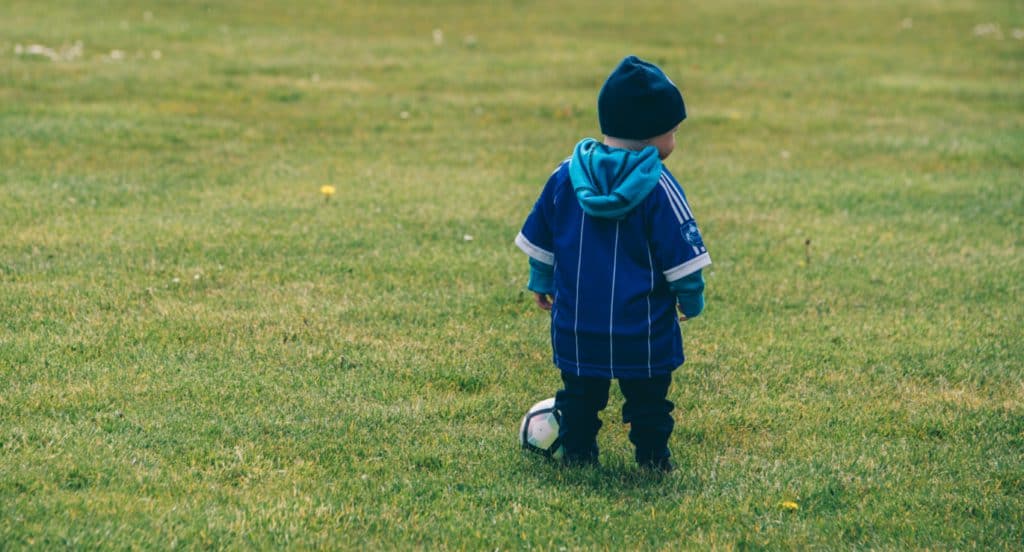
3 Credits
Offered
Fall Semester
Faculty
DESCRIPTION
Considers the application of psychological principles to educational theory and practice. Candidates explore the many ways of thinking about knowledge, teaching, and learning. Major theories of learning and development are introduced, and consistent themes and concepts identified
ED 301 – INTRODUCTION TO EXCEPTIONALITIES
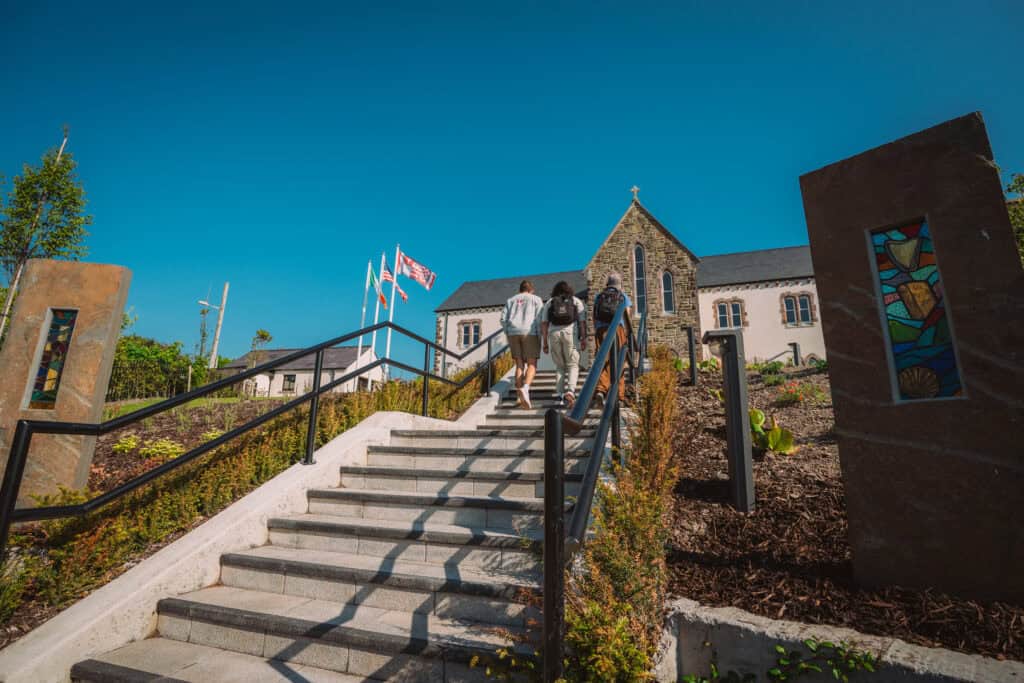
3 Credits
Offered
Fall Semester
Faculty
DESCRIPTION
Focuses on identification of students with exceptional needs as well as methods of meeting their educational needs in general and special education classroom settings. Exceptionalities studied include all areas identified by national and state mandates.
ED 311 – JUNIOR SEMINAR AND CLINIC I
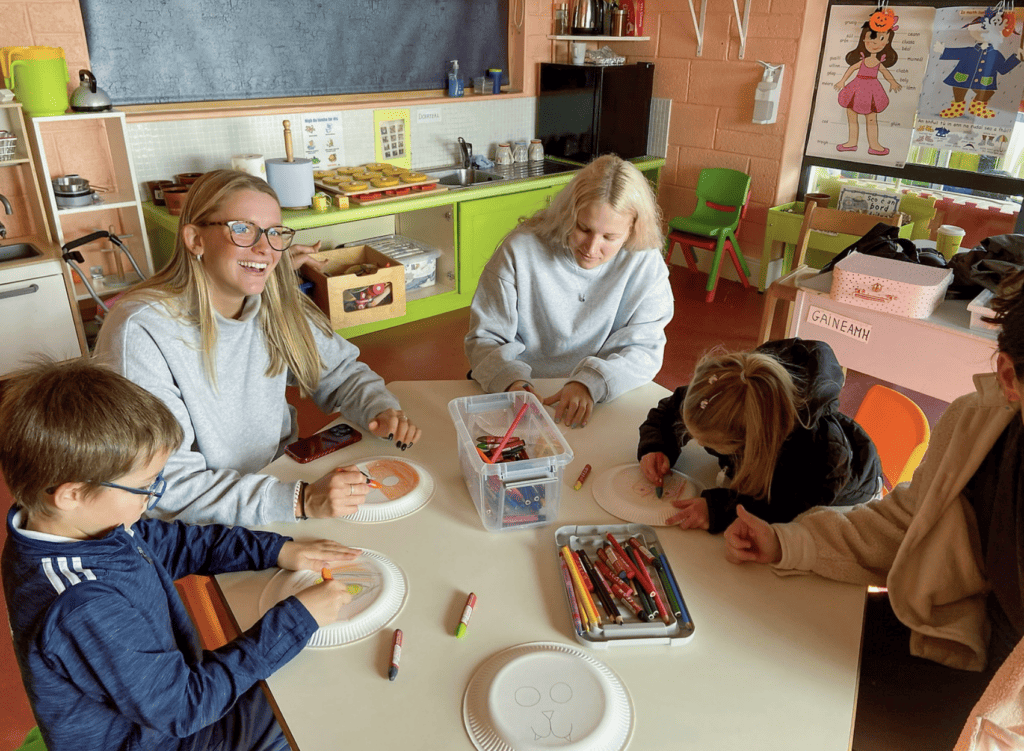
3 Credits
Offered
Fall Semester
Faculty
DESCRIPTION
This seminar is designed to support junior students in the teacher preparation program who will also be placed in a school setting. The focus will be on the scope and spectrum of schooling with a special focus on the diversity found in schools and the influence of democracy on schools and classrooms, both on a macro and micro level (policy and practices). Attention will also be paid to the moral dimensions of teaching and the high-leverage practice of relationship building.
ED 343 – INTRODUCTION TO LANGUAGE AND LITERACY
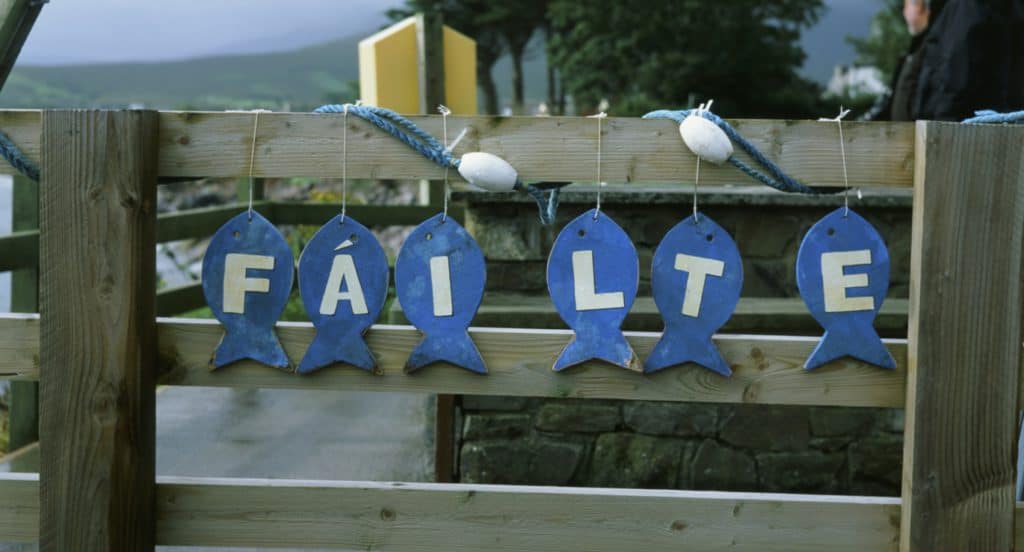
3 Credits
Offered
Fall Semester
Faculty
DESCRIPTION
This course examines children’s language and literacy development from Pre-K to sixth grade. Candidates learn from an interdisciplinary body of scientifically-based research on literacy and issues related to reading and writing as well as sociocultural perspectives that shape literacy instruction. Evidence-based teaching approaches are introduced to support teacher candidates’ foundational understanding of the development of word recognition, language comprehension, and writing. Candidates also learn about the role and language and culture on literacy learning with an emphasis on linguistic diversity and culturally and historically responsive instruction.
ED 341/541 - IRISH & AMERICAN EDUCATION IN COMPARATIVE PERSPECTIVE

3 Credits
Offered
Summer 2 Short Term
Faculty
DESCRIPTION
This course, based in the Gaeltacht region of West Kerry, compares the education system in Ireland with that of the United States. Topics addressed include curriculum and instruction, funding and governance, teacher preparation, multiculturalism, language policy, and contemporary school reform. Student will be introduced to the students and teachers of Dingle, Ireland and experience the Irish education system up-close and personal. You will observe classrooms in action, learn from Irish teachers and administrators, and meet teacher candidates and their professors.
Open to all students in FCE teacher preparation programs, the course counts in lieu of Education in the United States, Multicultural Education, or an MAT elective. ED 402 for undergraduate credit or ED 502 for graduate credit.
ENG 281 - WRITING IDENTITY IN IRELAND
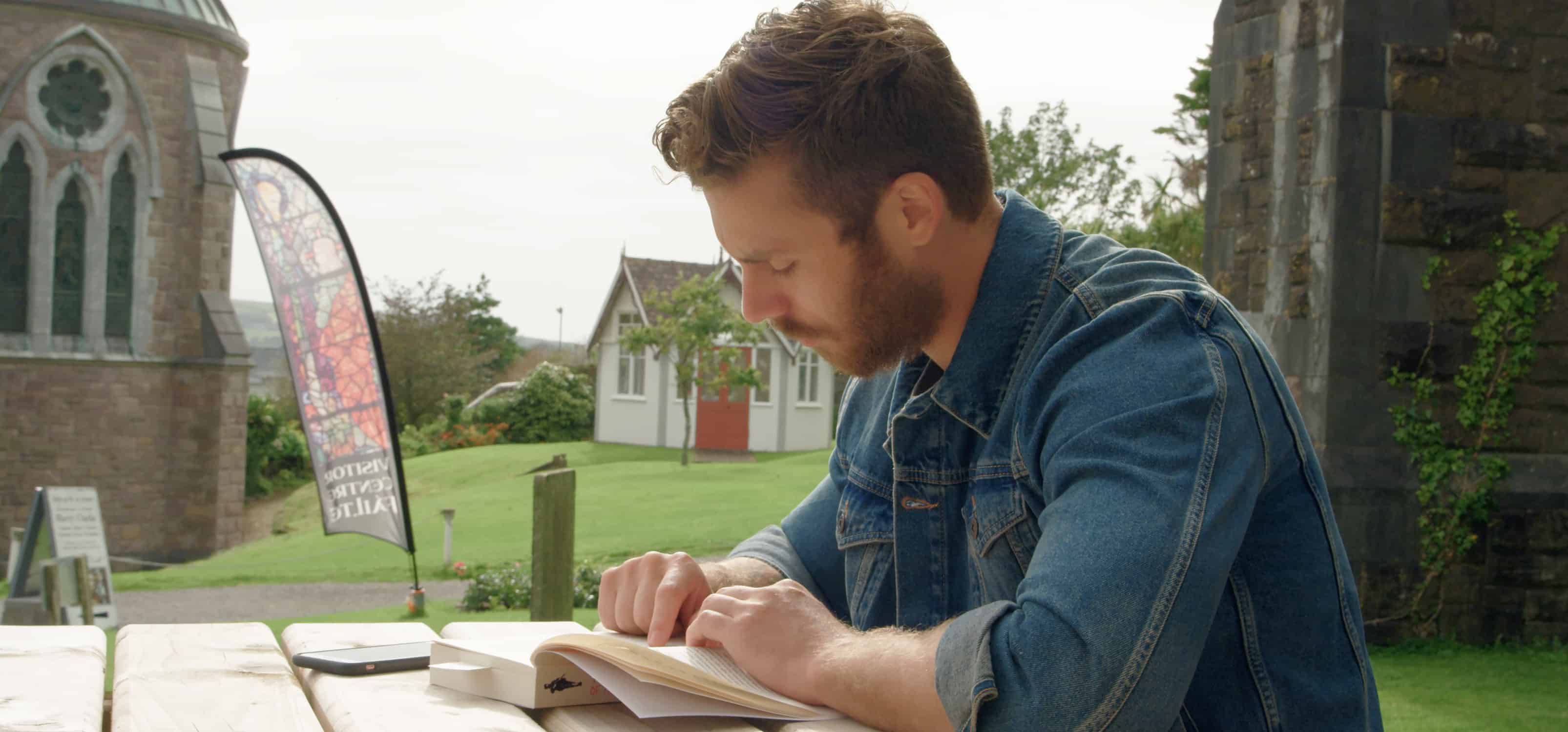
3 Credits
liberal arts exploration
- Humanistic Inquiry
Offered
Spring Semester
Faculty
DESCRIPTION
This workshop in creative writing is designed to encourage English majors’ and Irish Studies minors’ engagement with Irish literature through practice, the exercise of creative ideation, and to develop students’ deeper understanding and appreciation of historical and contemporary Irish literary texts through artistic expression.
Students will read and workshop their ideas about Irish and Irish-American-authored texts in class, which they will then build upon in weekly creative writings tasks. These projects will range from flash fiction to poetry, songwriting to scriptwriting and comic book-writing, which they will also share with each other in class and develop into a writing portfolio.
Unique to the SHU Dingle campus, participants of this creative writing workshop will attend a number of readings by local/contemporary authors (who write both in English and Irish) and present their work in two open mic nights alongside local practitioners. Students will develop an ongoing dialogue on Irish, Irish-American, and outsider identity through the sharing of their writing and ideas. They will enjoy a once-in-a-lifetime opportunity to explore and expand the Irish literary tradition from inside the Dingle literary arts scene.
ENG 299 - GHOST, CHANGELINGS, & MERMAIDS: TRADITION AND THE BODY IN IRISH WRITING
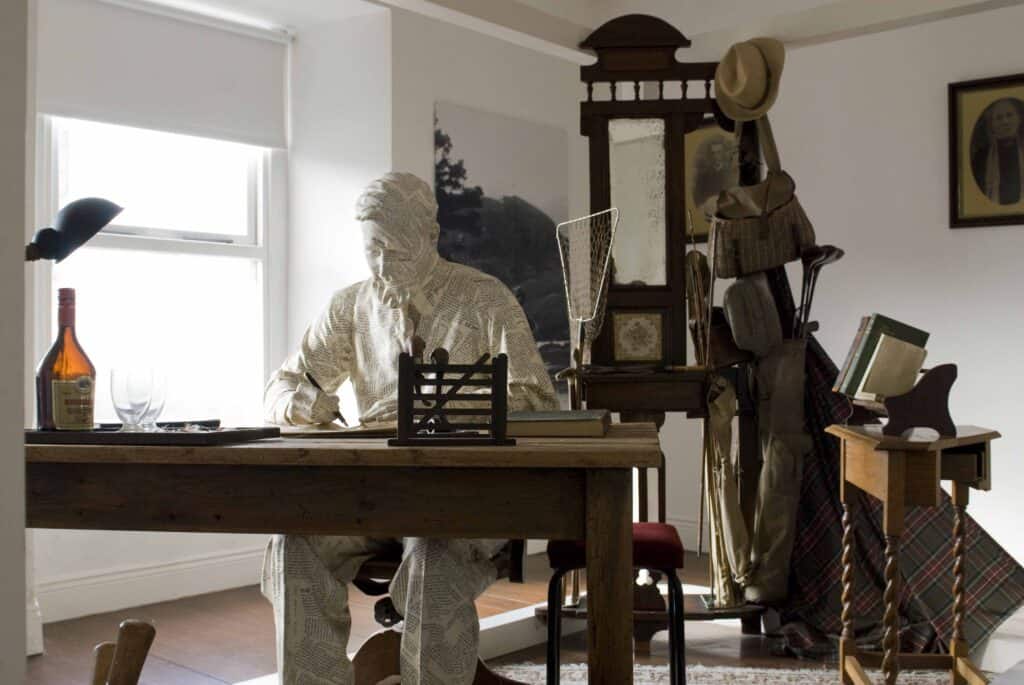
3 Credits
Offered
Summer 2 Short Term
Faculty
DESCRIPTION
In this course, we read Irish literature — poetry, fiction, plays, and essays — at the intersection of disability, illness, the body, gender, sexuality, class, contemporary and historical medical approaches, and folklore. Our classroom includes Dingle and the surrounding area, where we will encounter fairy forts, holy wells, haunted castles, literary festivals, and cosy pubs.
Readings include W. B. Yeats’s Irish Fairy and Folk Tales, Angela Bourke’s The Burning of Bridget Cleary: A True Story, and Nuala Ní Dhomhnaill’s The Fifty Minute Mermaid. Guest speakers/trip leaders include folklorists, archeologists, and writers, and the course also includes a day-trip to the Listowel Writers Festival to hear authors discuss their work.
HI 299 – THE FAMINE IN GLOBAL PERSPECTIVE
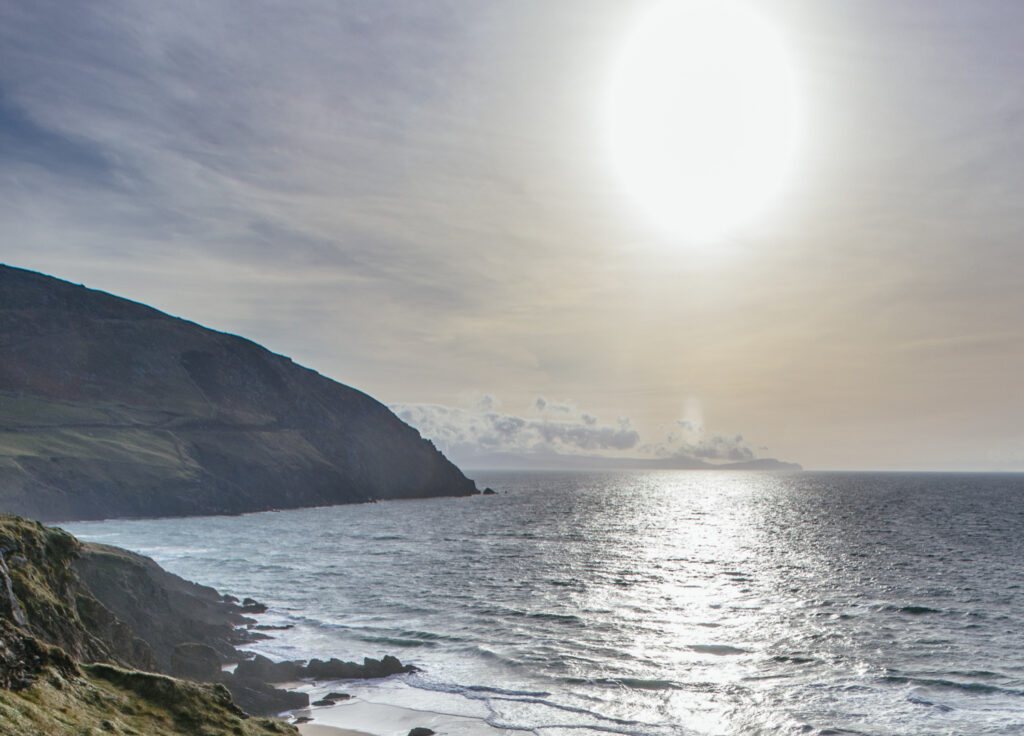
3 Credits
Offered
Summer 2 Short Term
Faculty
Description
MA 131 - STATISTICS FOR DECISION MAKING
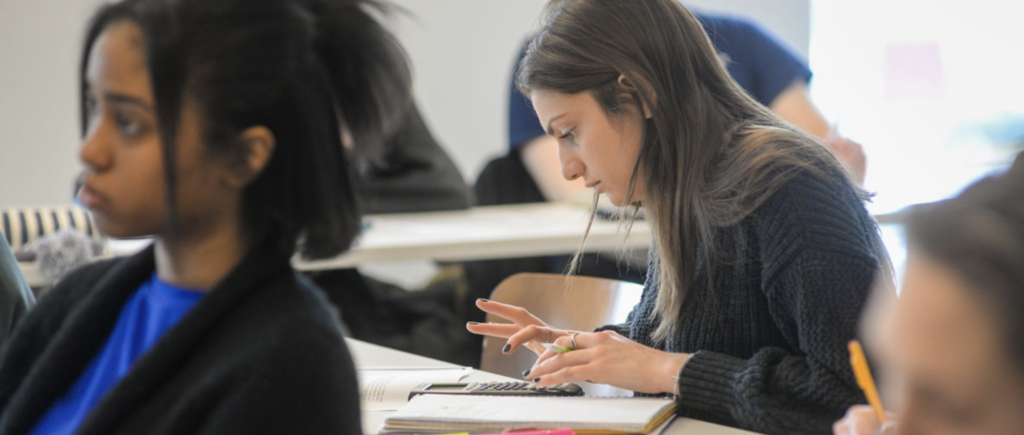
3 Credits
liberal arts exploration
- Scientific Literary
- Natural/Science Foundational Core
Offered
Fall Semester
Faculty
DESCRIPTION
Mu 106 - INTRODUCTION TO IRISH MUSIC
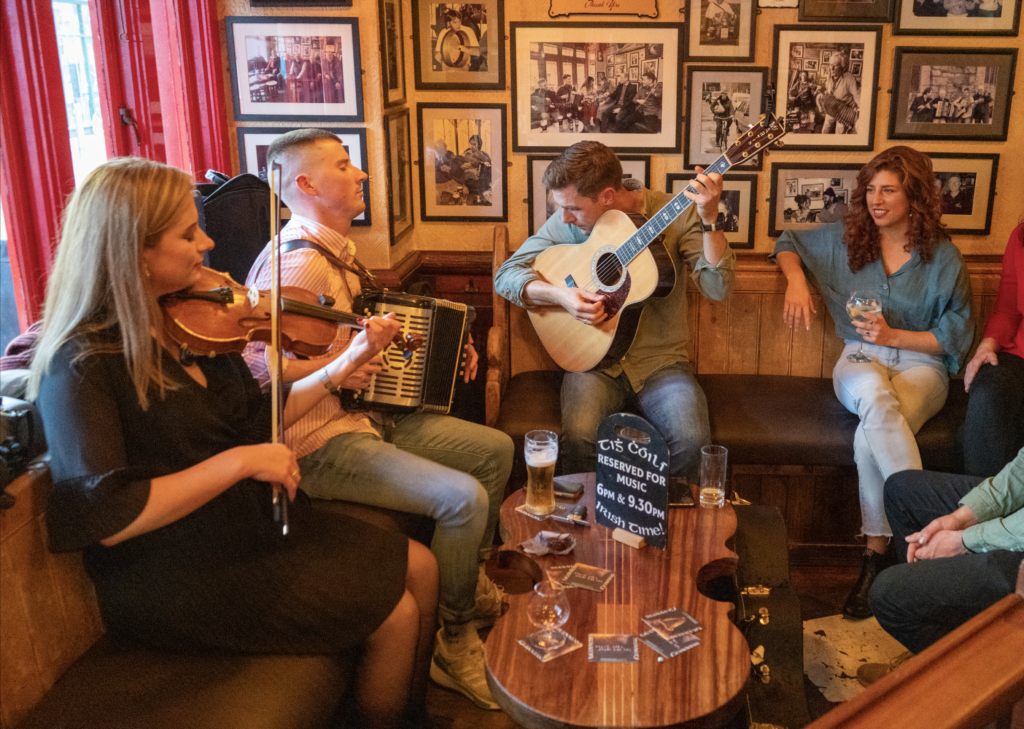
3 Credits
liberal arts exploration
- Humanistic Inquiry
- Social & Global Awareness
- Art/Communications/Language Foundational Core
Offered
Spring Semester
Fall Semester
Winter Short Term
Summer 2 Short Term
Faculty
DESCRIPTION
Attendance at sessions and “céilís” will enable them to savor Traditional music in its natural social setting. The course will study the history and development of the tradition, while also ensuring that the students gain a deeper understanding of this tradition by learning some practical skills.
Mu 290- Irish Myth in Music and Literature
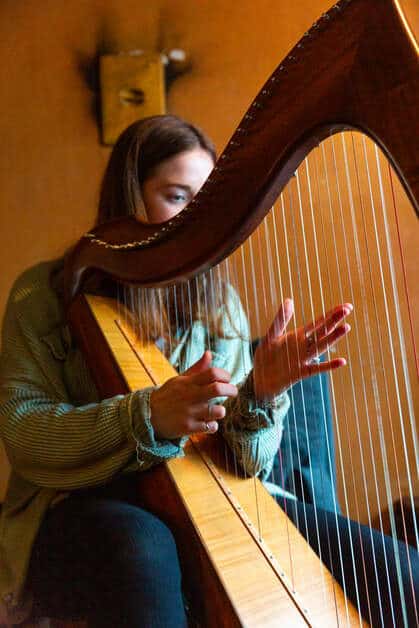
3 Credits
liberal arts exploration
Offered
Summer 2 Short Term
Faculty
Christopher Grundy, Ph.D.
Bryan Chuan, Ph.D.
DESCRIPTION
This interdisciplinary course closely examines this influence of Irish folklore, literature, and musical tradition in the Western musical canon through a collaborative study of the literary and performing arts. Questions students will deliberate include: What Irish literature has inspired composers the most, and how were these literary examples set musically? What musical characteristics define an Irish influence, e.g. orchestration, mood, tonality? How are traditional Irish melodies performed in their native language and setting, and how does this contrast with the direction they have taken abroad? How have composers from around the world perceived Irish culture, and are these stereotypes justified or worth debunking?
Students will be able to discover answers to these questions through reading, listening, and their own performances and interpretation of music.
PH 124 - INTRODUCTION TO ANCIENT PHILOSOPHY
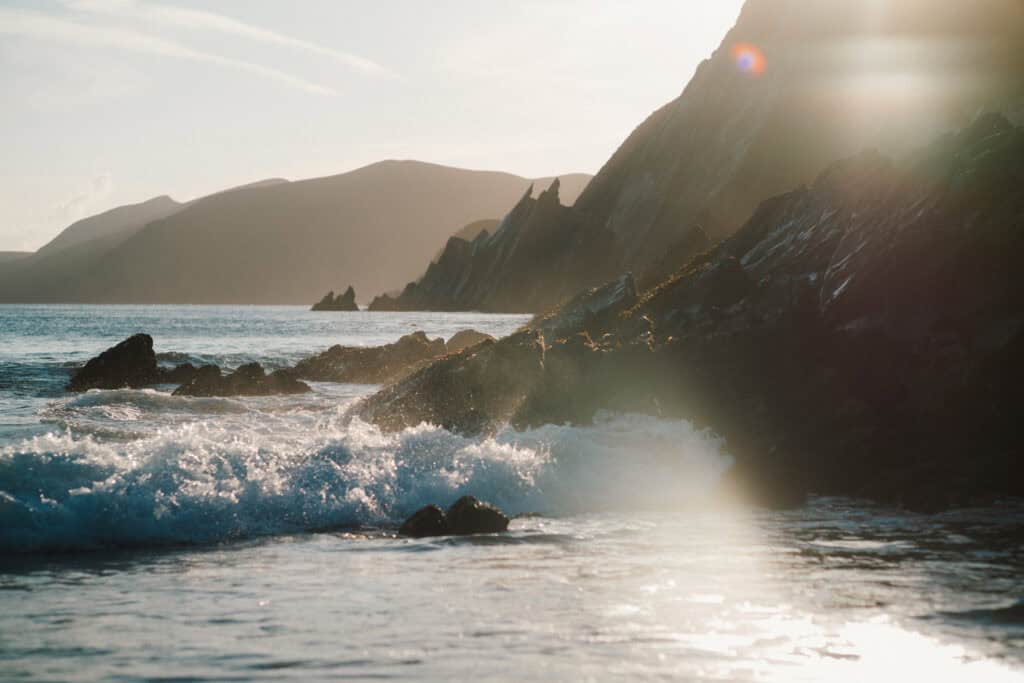
3 Credits
liberal arts exploration
- Philosophy Foundational core
Offered
Fall Semester
Faculty
DESCRIPTION
An examination of the beginnings of Western philosophic thought from the pre-Socratics through the Hellenistic period, with extensive consideration of Plato and Aristotle.
PH 271 - BIOETHICS: PHILOSOPHICAL APPROACHES
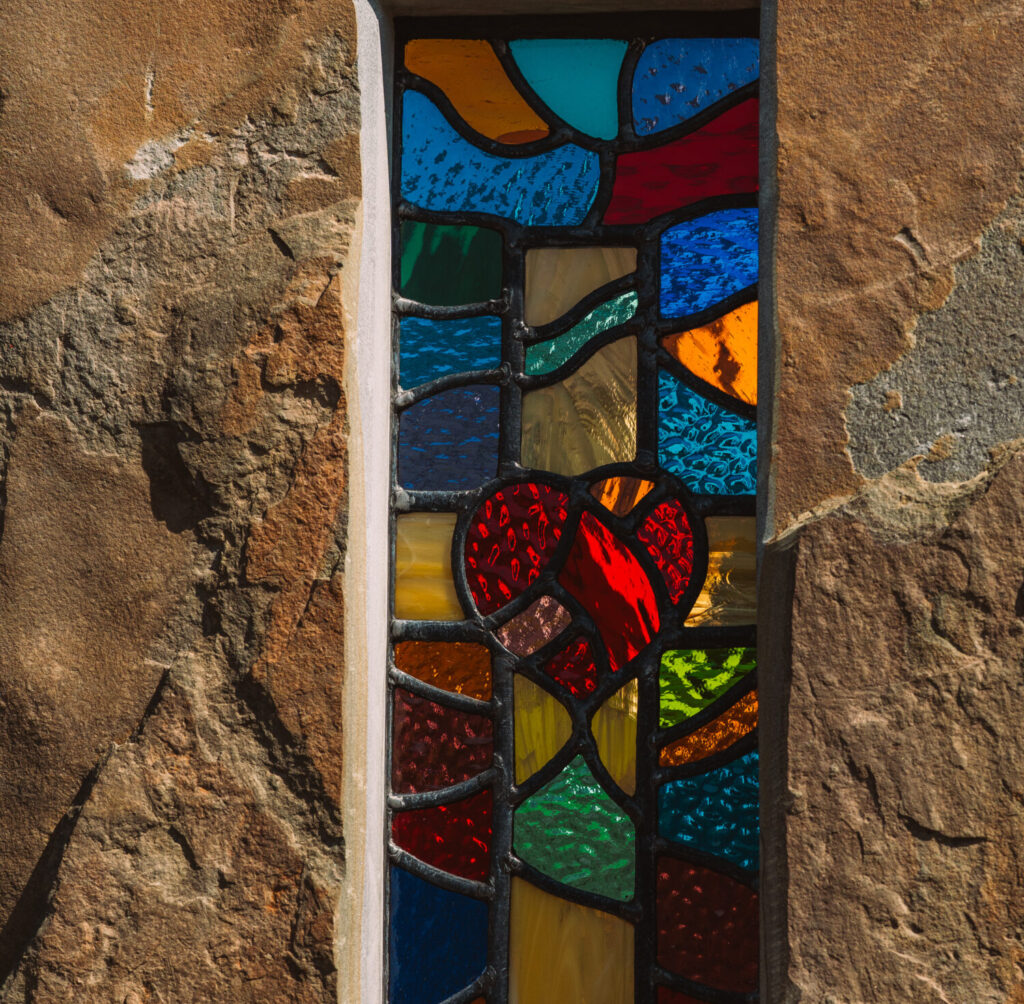
3 Credits
liberal arts exploration
- Humanistic Inquiry
Offered
Summer 2 Short Term
Winter Short Term
Faculty
DESCRIPTION
Spend 2 weeks learning about ethical issues in health care by exploring compelling scenarios and case-studies. Study the role of ethics and the importance of Philosophy to the Irish Catholic Intellectual Tradition and investigate how health care concerns impact the lives of patients and health-care providers throughout southwestern Ireland.
Among the central topics to be covered include informed consent, medical futility, reproductive ethics, privacy, cultural competence, and clinical trials.
PH 199 - SELF, MIND, AND NATURE
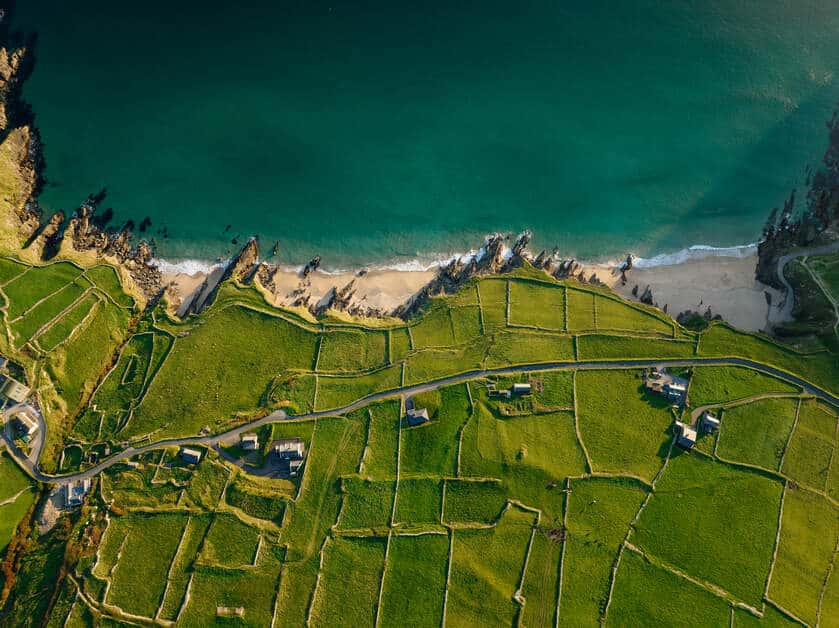
3 Credits
liberal arts exploration
Offered
Summer 2 Short Term
Faculty
DESCRIPTION
Self, Mind, and Nature approaches the landscape of the Dingle peninsula as a place to explore theoretical and personal concepts of selfhood and consciousness, and understand how these are embedded in, and affected by, nature. The main aim of the course is to gain an understanding of the mind as it shaped by our environment. Through fieldwork and guest speakers we will gain first-hand experience of related topics such as language, ecology, literature, and mythology. This course will be of particular interest to those pursuing studies in the fields of philosophy, psychology, healthcare, and anthropology.
Among the central topics to be covered include informed consent, medical futility, reproductive ethics, privacy, cultural competence, and clinical trials.
PS 295 - HEALTH PSYCHOLOGY
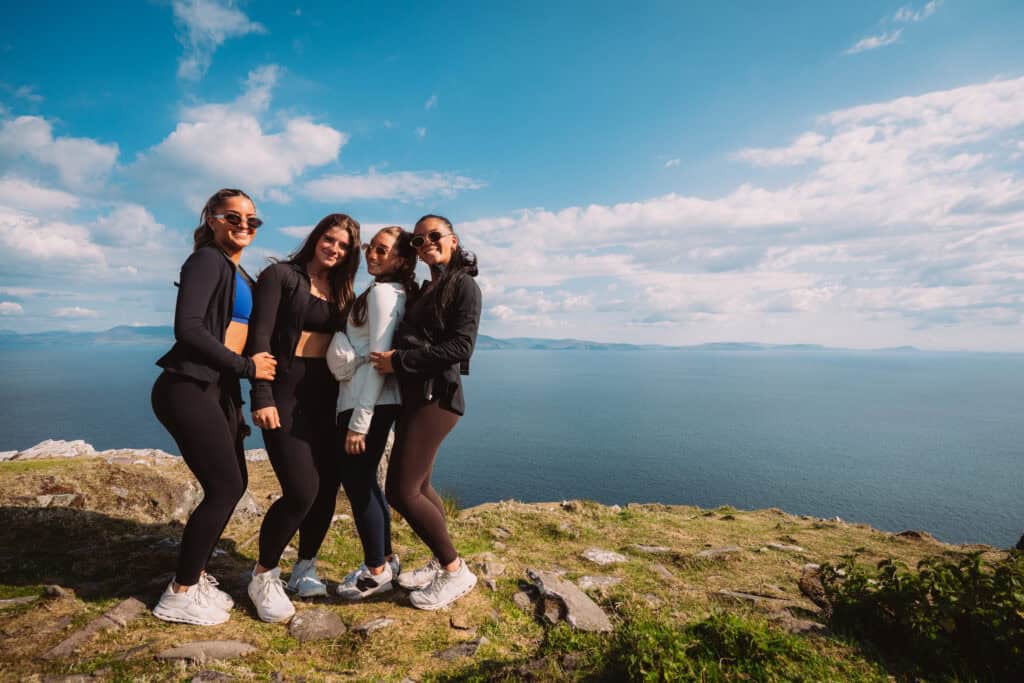
3 Credits
Offered
Fall Semester
Faculty
Roisin McKenna, MA
DESCRIPTION
Focuses on the relationship between attitudes and personality factors and health. Emphasis is on stress management and behavioral change methods for health improvement and maintenance.
PS 299 - IRISH INSPIRATIONS: A JOURNEY INTO THE CREATIVE ARTS

3 Credits
Offered
Summer 2 Short Term
Faculty
Lisa Smith, Psy.D.
DESCRIPTION
The creative and expressive arts offer individuals a way to explore personal experiences through various artistic forms (e.g., dance/movement, visual arts, writing, drama, and music). This course will focus on studying these different creative modalities from an Irish perspective. While in Dingle, students will learn foundational knowledge about the history, theory, and practical applications of the creative arts.
In addition, course excursions will be used to help students tap into their creativity by exploring museums, Irish towns, listening to Irish music, participating in an Irish dance class and interacting with local guest speakers. Upon returning to the United States, students will reflect on how their experiences in Ireland influenced their personal growth and creative expression.
PS 389 - CELTIC CONNECTIONS & ENRICHING THE BRAIN
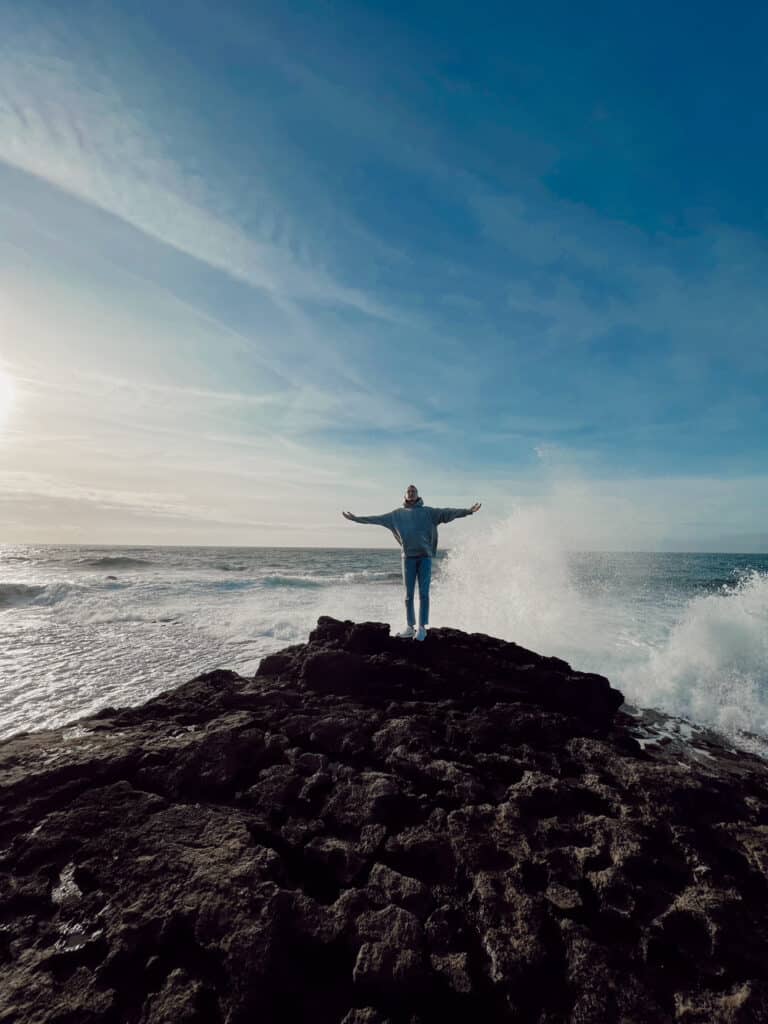
3 Credits
Offered
Summer 1 Short Term
Faculty
Rachel Bowman, Ph.D.
Dawn Melzer, Ph.D.
description
Engaging with Irish preschoolers, visiting the aquarium and creating enrichment activities for the animals, participating in a Celtic Cub Scavenger Hunt, immersing yourself in meditation in an Irish forest during Shinrin-Yoku and being exposed to Irish music and language through guest speakers and excursions.
These are just some of the experiences you will have in this course which offers an applied approach to understanding neuroscience, the intersection between psychology and biology. Students will examine key concepts in neuroscience including neuroplasticity, language acquisition, learning, stress, and environmental enrichment in applied settings.
In addition, it introduces students to fundamental claims of the Catholic Intellectual Tradition; enable students to understand that Tradition as characterized by open, rigorous intellectual inquiry in the context of a faith tradition; engage students and faculty in seminar discussion; and enable students to see the value of this Tradition in the contemporary world help develop students’ reading, writing, and speaking skills.
TRS 199 - PILGRIMAGE, POETRY, AND PLACE: THE DINGLE PENINSULA AS A SACRED TEXT
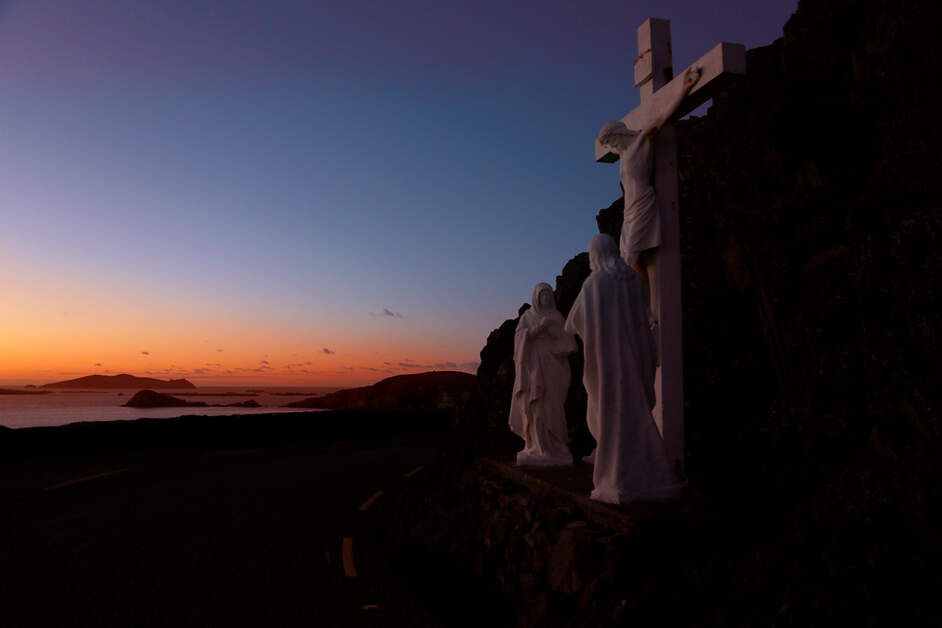
3 Credits
liberal arts exploration
Offered
Summer 2 Short Term
Faculty
Cyrus P. Olsen III, D.Phil.
Description
Experience the Dingle Peninsula as both physical landscape and living scripture through an intensive, field-based study of Irish pilgrimage traditions, contemporary poetry, and place-rooted theology. Blending seminar discussion with embodied learning, students walk portions of ancient routes, visit early monastic sites and oratories, listen to local historians and artists, and practice attentive “reading” of land and seascapes. Along the way, we explore poems, songs, travel writing, and theological essays that translate Dingle’s textures into language, ritual, and ethical imagination.
The course cultivates habits of seeing and saying: close reading, ethnographic observation, and contemplative practice. Students learn methods from literary analysis, theology, and comparative religion to interpret how pilgrimage forms communities of meaning; how ecological contexts shape ritual, devotion, and ethics; and how place-based art can repair fractured imaginations. Short workshops introduce elements of Gaeilge, oral tradition, and eco-spirituality, while studio sessions support a creative portfolio grounded in field experience and informed by respectful engagement with local communities. Attention to hospitality, safety, accessibility, and environmental stewardship is integral to our practice, as is consideration of decolonial perspectives and the responsibilities of visitors. By term’s end, students will be able to read a landscape as they would a poem: tracing motifs and metaphors, naming sources and stewards, and discerning how place shapes identity, belonging, and hope. In Dingle, the ordinary paths, wells, cliffs, and cottages become a text through which durable questions of meaning can be asked anew.
TRS 271 - CELTIC RELIGIOUS TRADITIONS
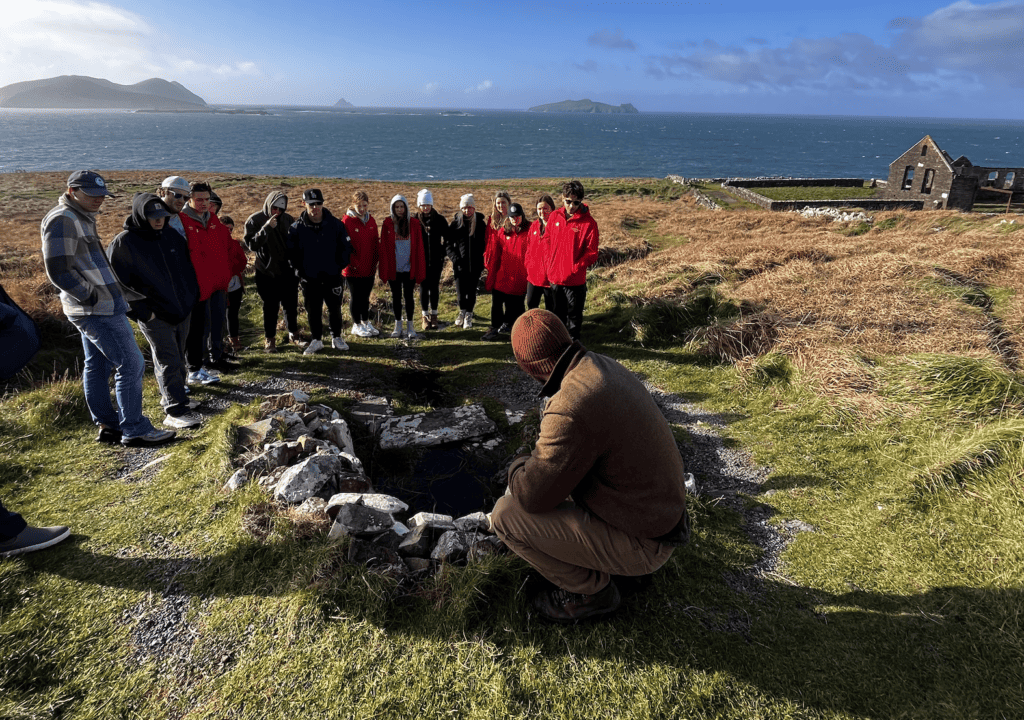
3 Credits
liberal arts exploration
- Humanistic Inquiry
- Social and Global Awareness
- Theology/Religious Studies foundational core
Offered
Fall Semester
Winter Short Term
Spring Semester
Faculty
Billy Magfhlionn, Ph.D.
Description
Study the ancient religion of Ireland, of gods and goddesses, ancestors and rituals, holy places and sacred rulers. Learn about the Celtic origins of Halloween, and the great seasonal festivals of the druids. Walk through the landscape and discover traditions and customs from ancient times that are reflected in the modern world, through myth, place names and customs.
